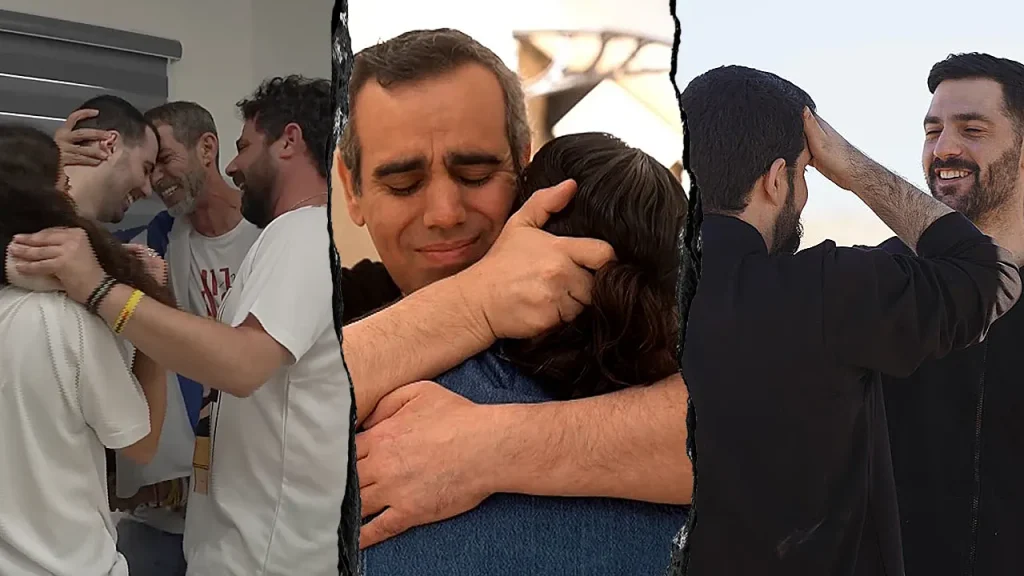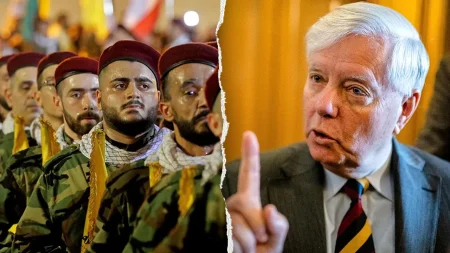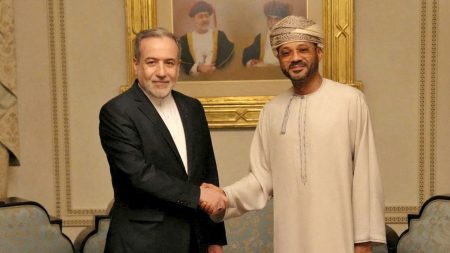A Week of Hope and Homecomings in Israel
This past week brought moments of profound joy and relief to many Israeli families as their loved ones returned home after being held hostage by Hamas. The swift peace deal, brokered by President Trump and his team, has transformed despair into celebration for families who have endured months of agonizing uncertainty.
The story of Lishay Lavi-Miran exemplifies this emotional journey. Just a month ago, at a rally in Tel Aviv’s “Hostage Square,” she made a heartfelt plea for her husband Omri Miran, a 48-year-old father of two young girls who had been violently taken from their kibbutz home by Hamas terrorists. “I’m begging for the life of Omri and all the others,” she implored at the time, her voice carrying the weight of her fear. “I’m begging for us, for really all the Israeli people.” On Monday, her prayers were answered. Amateur video captured her overwhelming joy upon seeing Omri being transferred to an IDF helicopter. Looking remarkably well despite his ordeal, Omri was soon reunited with Lishay, both wearing matching T-shirts in a touching display of their reconnection. Perhaps most moving was his reunion with his two daughters, including his 6-month-old who had reportedly learned the Hebrew word for “Daddy” during his absence—a poignant reminder of the family milestones lost during captivity.
The story of the Berman twins, Ziv and Gali, offers another window into the complex emotions surrounding these reunions. Their older brother Liron maintained unwavering hope during their captivity, stating with conviction at the same rally, “They will survive, they will be here.” His faith proved prophetic. In a particularly remarkable twist, the 28-year-old twins had been separated after their abduction and were only reunited upon their release Monday. Amateur footage captured their jubilant embrace, their distinctive personalities apparently undiminished by their ordeal—Ziv retaining his charm, Gali still embracing her love of the high life. Soon after, they were transported by helicopter to meet their waiting family, sporting T-shirts of their favorite local football team and taking in the passing scenery with newfound appreciation, their freedom still a fresh miracle.
The peace agreement that facilitated these emotional reunions was pushed through by President Trump and his team, a fact not lost on former hostage Keith Siegel, who had spent 484 days in captivity before his own release. Having become a vocal advocate for the remaining hostages and a supporter of President Trump, Siegel’s gratitude was explicit: “Thanks to President Trump, I am here today, I am alive, I am released,” he stated emphatically. His appeal for the president to “continue his efforts” was answered in this latest breakthrough, bringing more families together and healing wounds that had seemed impossible to close just days earlier.
While these reunions represent profound personal victories, they exist against a backdrop of ongoing tragedy. The remains of only some of the 28 deceased hostages have been returned by Hamas so far, leaving many families still waiting for closure. The Gaza Strip continues to be a zone of devastating humanitarian crisis and danger. And most of the twenty points outlined in the comprehensive peace plan remain unaddressed, their implementation uncertain in a region where hope and heartbreak have long existed side by side.
Yet in this moment, for the families embracing their returned loved ones, there is space for joy amidst the ongoing challenges. The opportunity to exhale, to breathe freely again without the crushing weight of uncertainty, represents a precious gift. These reunions remind us of the profound human capacity for resilience and the enduring power of hope even in the darkest circumstances. As one observer simply put it: “Peace is good.” For these families, that peace has taken the most personal and precious form—the safe return of those they love, and the chance to begin healing together.














